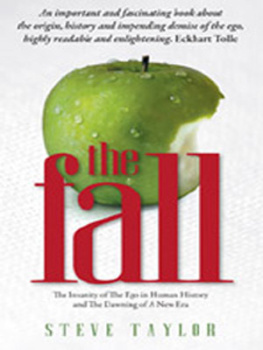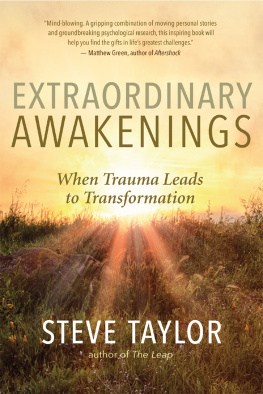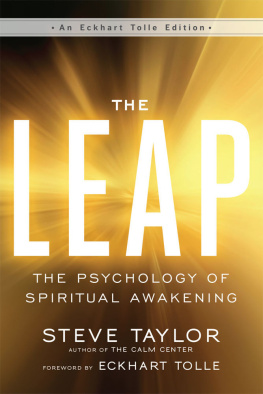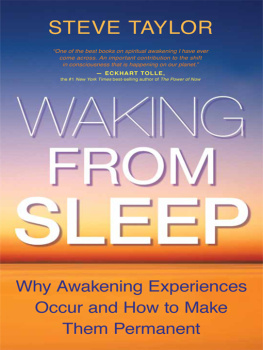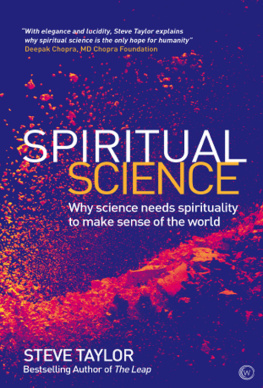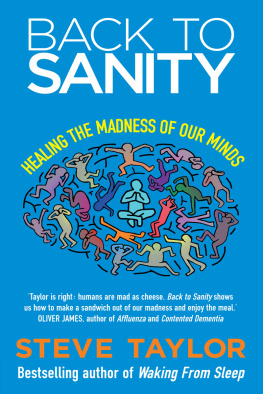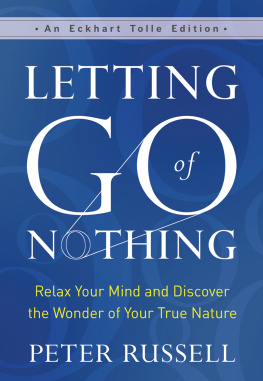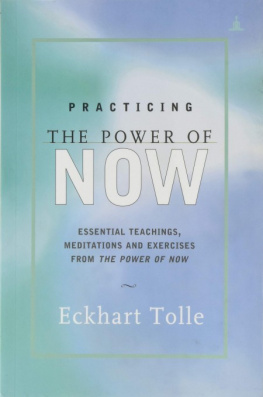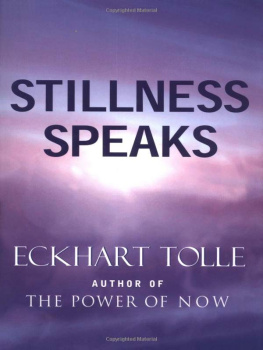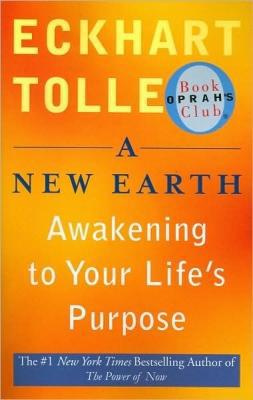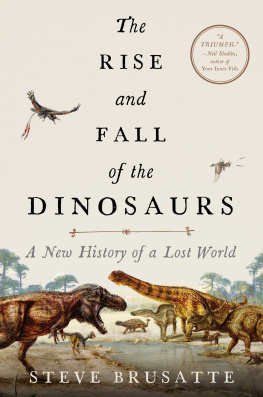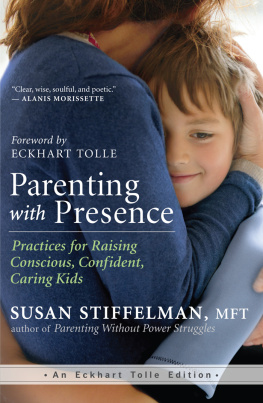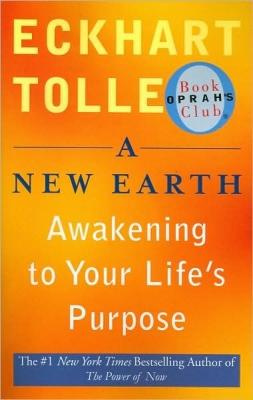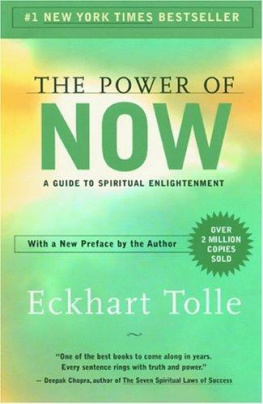Copyright 2005 O Books
O Books is an imprint of The Bothy, John Hunt Publishing Ltd.,
Deershot Lodge, Park Lane, Ropley, Hants, SO24 0BE, UK
office@johnhunt-publishing.com
www.O-books.net
Distribution in:
UK
Orca Book Services
orders@orcabookservices.co.uk
Tel: 01202 665432 Fax: 01202 666219 Int. code (44)
USA and Canada
NBN
custserv@nbnbooks.com
Tel: 1 800 462 6420 Fax: 1 800 338 4550
Australia
Brumby Books
sales@brumbybooks.com
Tel: 61 3 9761 5535 Fax: 61 3 9761 7095
New Zealand
Peaceful Living
books@peaceful-living.co.nz
Tel: 64 7 57 18105 Fax: 64 7 57 18513
Singapore
STP
davidbuckland@tlp.com.sg
Tel: 65 6276 Fax: 65 6276 7119
South Africa
Alternative Books
altbook@global.co.za
Tel: 27 011 792 7730 Fax: 27 011 972 7787
Text: Steve Taylor 2005
Design: infograf.co.uk
ISBN 1-905047-20-7
All rights reserved. Except for brief quotations in critical articles
or reviews, no part of this book may be reproduced in any
manner without prior written permission from the publishers.
The rights of Steve Taylor as author have been asserted
inaccordance with the Copyright, Designs and Patents Act 1988.
A CIP catalogue record for this book is available from the
British Library.
Printed in the UK by Chris Fowler International
FOREWORD
OVER THE YEARS I have been fascinated by the prehistoric murals that adorn the caves I have visited in many parts of the world. I have been struck by the absence of images of warriors or warfare in the paintings. In this remarkable book, Steve Taylor explains this absence. He maintains that the worldwide myths of a Golden Age or an original paradise have a factual, archaeological basis. There was a specific point in pre-history when things went wrong that is, when warfare, patriarchy, social inequality and similar developments became widespread. Until that time, human societies were generally peaceful and egalitarian, and individuals experienced a sense of psychological well-being and connection to the cosmos. This is not merely conjecture or wishful thinking; Taylor marshals an impressive, wide-ranging body of evidence to make his case.
The transformation began about 4000 BCE , due to dramatic changes in climate in central Asia and the Middle East. These changes made survival more difficult and produced a sharpened sense of individuality among the areas inhabitants. Taylor refers to this as the Ego Explosion, maintaining that this is the fundamental difference between the descendants of these peoples (such as modern Europeans and Americans) and the remaining indigenous groups such as the Australian Aborigines and the Native Americans. He sees this sharpened sense of ego as the root cause of war, male domination and social oppression, as well as other traits such as theistic religion. He makes the case that rather than showing a continual progression (as some historians would like to believe), in many ways human history is marked by a degeneration.
After his detailed analysis of the long, sorry saga of violence and oppression that makes up recorded history, Taylor still manages to take an optimistic view of humankinds future. There are, he believes, many signs that we are entering a new historical phase, one that he calls the trans-Fall era. Recent developments such as more egalitarian relationships between men and women and a healthier regard for the human body and nature provide some hope for the future.
Taylors ideas are provocative, and never fail to captivate the reader. It is my fervent wish that his important book will have a wide audience and reach the individuals and institutions that mould public opinion and behaviour. In a world where the very existence of humanity is threatened, Steve Taylor offers a visionary yet practical path out of the morass that distorts human nature.
Dr. Stanley Kripper
Professor of Psychology,
Saybrook Graduate School,
California
INTRODUCTION
FOR THE LAST 6000 years, human beings have been suffering from a kind of collective psychosis. For almost all of recorded history human beings have been at least to some degree insane.
This seems incredible because we have come to accept the consequences of our insanity as normal. If madness is everywhere, nobody knows what sane, healthy and rational behaviour is any more. The most absurd and obscene practices become traditions, and are seen as natural. It becomes natural for human beings to kill each other, for men to oppress women, for parents to oppress children, for small groups of people to wield massive amounts of power and dominate massive numbers of other people. It becomes normal for people to abuse the natural world to the point of ecological disaster, and to despise their own bodies and feel guilty for experiencing completely natural desires. It becomes natural for human beings to try to accumulate massive amounts of wealth that they will never need, and to endlessly chase after success, power and fame and also somehow natural that, even if they do manage to gain wealth and status, they never find contentment and fulfilment anyway, but remain constantly dissatisfied.
The aim of this book is to discover where this madness comes from, and to find out if it really is natural to human beings. Well look at a great deal of evidence suggesting that earlier human beings were, in these terms, much more sane than us. And even until recent times there were many parts of the world where the kind of pathological behaviour Ive just described didnt exist.
All of this insanity was the result of an event which I call The Fall a collective psychological shift which large groups of people underwent around 6000 years ago, as a result of an environmental disaster which began in the Middle East and central Asia. A new kind of human being came into existence then, with a more defined sense of individuality, and a new way of experiencing life and perceiving the world. In some ways the new human type was an advance it brought technological advances, for example, and the civilisations of Sumer and Egypt (and many others afterwards). But it also gave rise to social pathologies such as warfare, male domination and social inequality.
We will see that before the Fall human life seems to have been fairly carefree and pleasant, even joyful. But after it life became nasty, brutish and short, so full of misery that countless generations could only endure it by convincing themselves that it was just a brief stopover to grin and bear as best they could before they ascended to an eternal paradise. But perhaps now, as I discuss in the final section of this book, we are turning a full circle, and returning to a kind of sanity. Over the last few centuries particularly since the eighteenth century there have been signs of a re-emergence of all of the old pre-Fall characteristics. There has been a re-emergence of democracy and equality, of respect for nature and the human body, of an awareness of the essential spiritual reality of the cosmos, and so on. These characteristics perhaps havent yet become as dominant as fallen ones, but theyre certainly gaining in strength as time goes by.
The years Ive spent researching and writing this book have been an inspiring voyage. I couldnt have completed the journey without the help of a large number of guides. Im particularly grateful to Riane Eisler, Gerhard Lenski, Christopher Boehm, Robert Lawlor, Richard Heinberg, Brian Griffith, Elizabeth Baring and Jules Cashford, Richard Rudgley, Elman R. Service, Margaret Power and Christopher Ryan, not to mention the many authors of scholarly papers particularly in the field of anthropology whose work Ive drawn on. Im also grateful to Stanley Krippner and Christopher Ryan for their extensive comments on the manuscript. But perhaps most of all, Im grateful to James DeMeo, whose book Saharasia provided me with a key to understanding the environmental causes of the Fall.

